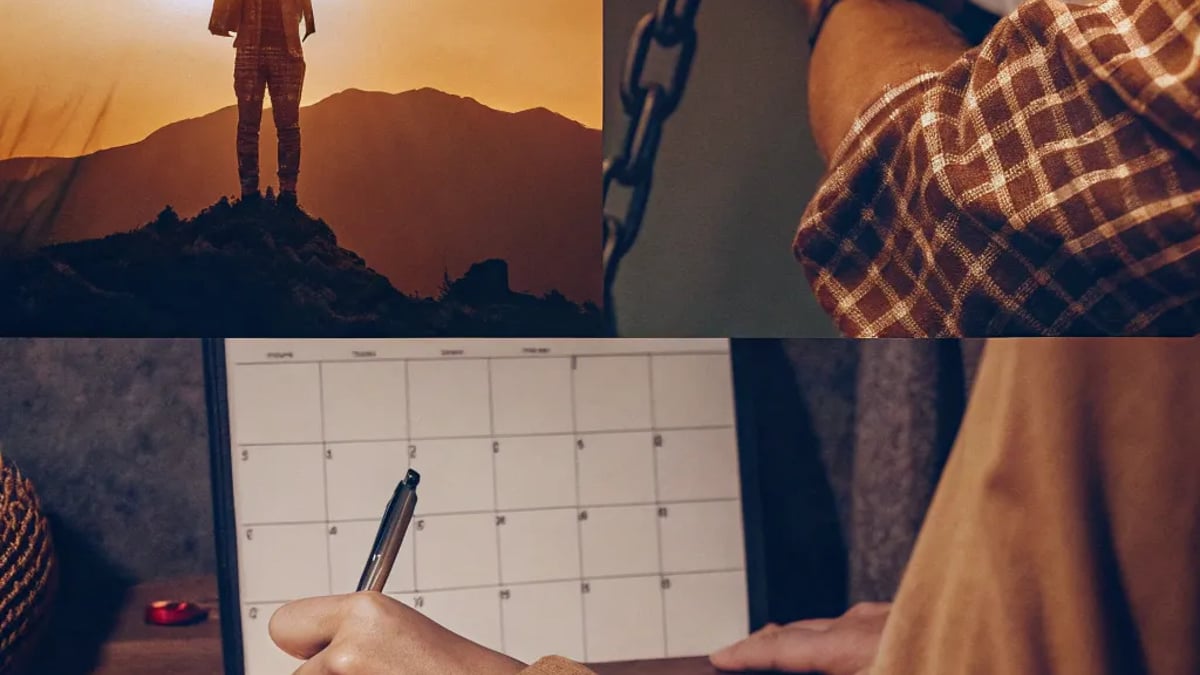
The first step of my debt-free journey began on a rainy Tuesday last March when I finally opened all those credit card statements I'd been avoiding. The numbers were worse than I expected – $32,476 spread across three credit cards and a personal loan. That moment of clarity became my financial rock bottom, but also the catalyst for the weekly tracking system that ultimately helped me eliminate my debt.
The Reality Check: Starting My Financial Recovery
Nobody talks about how emotionally draining debt can be. Before tackling the numbers, I had to confront the guilt and shame I felt about my financial situation.
I remember sitting at my kitchen table, calculator in hand, realizing I was paying nearly $450 monthly just in interest. That's when it clicked – I wasn't just giving away my current income; I was sacrificing my future security.
Unlike some debt-free journeys you might read about, mine didn't involve a sudden windfall or six-figure salary. I was making about $58,000 annually in marketing, living in a modest one-bedroom apartment, and driving a 2012 Honda that occasionally made concerning noises.

Weekly System: The Unexpected Game-Changer
The breakthrough came when I abandoned monthly budgeting for a weekly tracking system. Monthly budgets weren't working because payday felt too far from month-end, creating a disconnect between my income and spending patterns.
Instead, I created a simple spreadsheet with these weekly check-in elements:
- Income received (including side hustles)
- Essential expenses paid
- Debt payments made
- Unexpected expenses encountered
- Weekly reflection (what worked/what didn't)
This weekly rhythm kept me engaged with my finances without becoming obsessive. The reflection component proved particularly valuable, as patterns emerged that I hadn't previously noticed.
The Emotional Side of Debt Repayment

What financial experts rarely discuss is how debt repayment fluctuates with life's challenges. During week six of my journey, my dog needed an emergency vet visit. Week seventeen, my car's transmission required repairs.
These setbacks initially felt devastating. I'd write in my weekly reflection: "Failed again. Back to square one." But over time, I realized these weren't failures – just normal life events that required financial flexibility.
As Resource Generation points out in their reflections on financial community, not everyone starts from the same place. Some people never experience debt because their education was fully funded. Understanding this helped me be kinder to myself about my own journey.
Finding Financial Community
The isolation of debt can be overwhelming. While friends posted vacation photos, I was celebrating paying off a credit card – not exactly Instagram-worthy by conventional standards.
I found unexpected support through a local financial wellness group that met monthly at the community center. Hearing others' stories – both successes and struggles – normalized my experience and provided practical strategies I hadn't considered.
What Actually Worked: My Top Lessons
After 18 months of consistent effort, I made the final payment on my debt. Looking back through my weekly reflections, these strategies made the biggest difference:
The Debt Snowball Method (With a Twist) Rather than strictly following the smallest-balance-first approach popularized by Dave Ramsey, I modified this strategy based on interest rates. I paid minimum payments on everything except my highest-interest debt, which received every extra dollar I could find.
Income Stacking Similar to what the Journey To Launch podcast discusses, I looked for ways to temporarily increase income rather than just cutting expenses. This included freelance writing projects, weekend retail work during holiday seasons, and selling unused items.
Celebration Milestones I established small rewards at specific debt reduction milestones – not expensive ones that would derail progress, but meaningful breaks from austerity. When I paid off my first credit card, I bought concert tickets to see my favorite band.
Can Education Prevent Future Debt?
One question that frequently appears in my reflections: Could better financial education have prevented my debt situation?
While programs like the North Star Promise help students access education without accumulating massive student loans, general financial literacy remains a critical gap in our education system.
As Civil Rights notes in their reflections on higher education, many students begin their financial journeys on paths nobody in their families have traveled before, often without guidance on managing the associated costs and potential debt.
Looking Forward: Life After Debt
The most unexpected outcome of my debt-free journey wasn't just financial freedom, but a profound shift in how I view money. I've developed a relationship with my finances that feels empowering rather than restrictive.
Like the tiny house dweller in Education Reimagined's article, I've found that financial constraints can sometimes lead to creative solutions and unique opportunities. The money once allocated to debt payments now builds my emergency fund and retirement accounts, creating security I've never experienced before.
My weekly reflection habit continues, though now focused on savings goals and investing milestones rather than debt reduction.
Disclaimer: This content is based on my personal experience and is shared for informational purposes only. It should not be considered financial advice. Everyone's financial situation is unique, and what worked for me may not be appropriate for others. Please consult with a financial professional before making significant financial decisions.
Tags

About Elliot J. Branson the Author
Elliot J. Branson is a seasoned financial analyst with over two decades of experience guiding individuals through their investment journeys. His expertise lies in creating personalized strategies to help investors navigate volatile markets and achieve long-term financial success.
Recommended Articles
Home Loan Programs for Lower Credit Scores
Discover how home loan programs tailored for lower credit scores help you realize your dream of homeownership. Explore FHA, VA, and USDA options today.
Comparing Medicare Advantage Plans
Explore our comprehensive guide to comparing Medicare Advantage plans, focusing on coverage options, costs, and provider networks.
Where to Find Public Car Auctions Near You
Discover how to find public car auctions near you and learn tips for a successful bidding experience on used vehicles.
Evaluating Medicare Advantage Plan Options
Learn how to evaluate Medicare Advantage Plans to make informed decisions regarding your healthcare coverage and choose the best fit for your needs.
Understanding Apartment Costs and Lease Terms
Understand apartment rental costs and lease terms to make informed decisions for a successful rental experience. Navigate expenses and legal frameworks easily.




